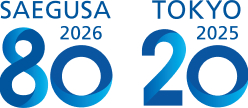Digitization, half-completed?
2022.09
A new rule regarding power of attorney documents will bring huge benefits

© Eva Almqvist/iStock
Background
As previously reported, in response to an urgent, pandemic-triggered need to make working-from-home more common, the Japan Patent Office (JPO) announced that for all kinds of documents (except for documents necessary for particular procedures, wherein a counterfeit would lead to serious damage (e.g., a right transfer), and documents governed by PCT rules), including powers of attorney (PoA), signatures are no longer necessary.
This recent rule change does not forbid submitting the above documents with signatures. However, because of the JPO’s current rule, there are some caveats to the above. Specifically, under the current rule, the original copies of such signed documents must be submitted. In other words, a scanned copy of such a signed document is not acceptable. Moreover, as the JPO still does not accept the digital submission of these documents, a physical version of the document must be submitted. Therefore, whereas in addition to a traditional wet signature (handwritten on paper with ink), non-traditional signatures by means other than a wet signature (such as a digital signature, a signature handwritten with a stylus, an inserted digitized image of a handwritten signature, etc.) are widely used in the modern business world, the JPO’s current rule does not allow for the submission of documents with any of these non-traditional signatures. The reason therefor is that it is considered impossible to submit, in the form of a physical document, the original copy of a document with a non-traditional signature.
New Rule
Accordingly, techies may celebrate a rule change recently announced by the JPO. Specifically, on September 1, 2022, the JPO announced that they plan to start accepting from late September 2022 copies of PoAs signed in any manner (note: this new rule only applies to PoAs). In this context, as the JPO does not yet accept digitally submitted PoAs, a digital copy of a PoA with a non-traditional signature cannot be submitted; however, a print-out thereof can. According to the JPO, such a print-out will be treated as a suitable copy of a PoA with a non-traditional signature.
Conclusion
This new rule will bring huge benefits. Firstly, a scanned copy of a PoA with a traditional signature will be one option. Secondly, the new rule change will also make PoAs with non-traditional signatures useable at the JPO for the first time.
While the JPO, for the time being, does not accept digitally submitted PoAs, the digital transmission thereof between applicants etc., and their Japanese representatives can be effectively used under the new rule.


